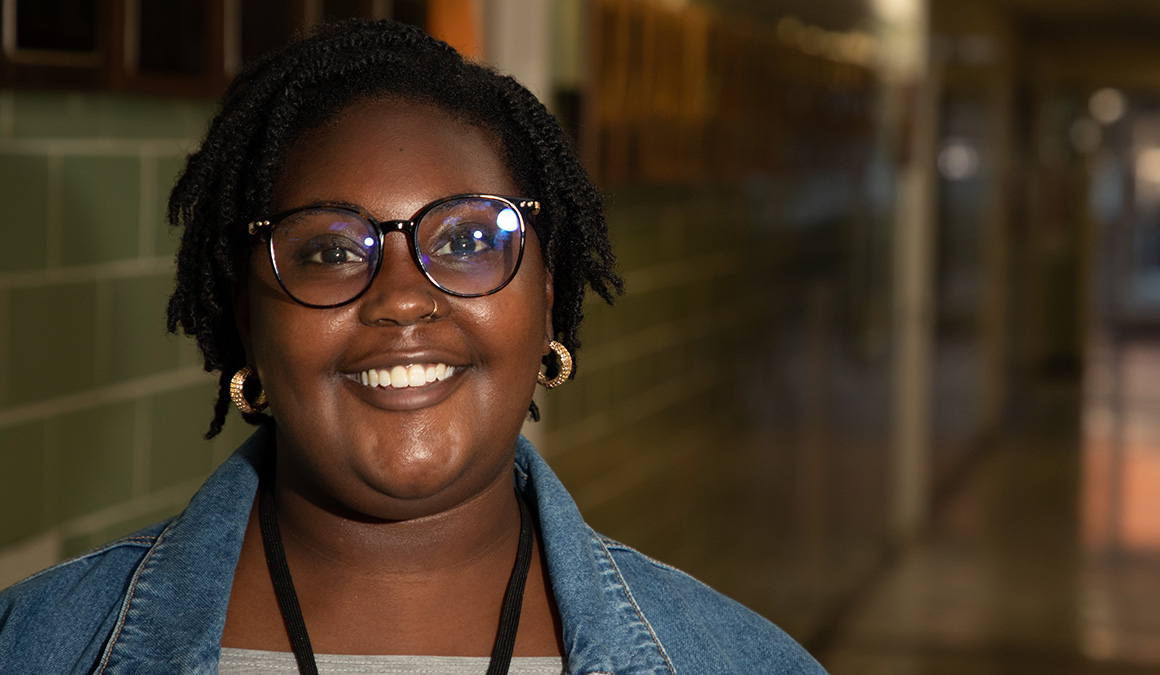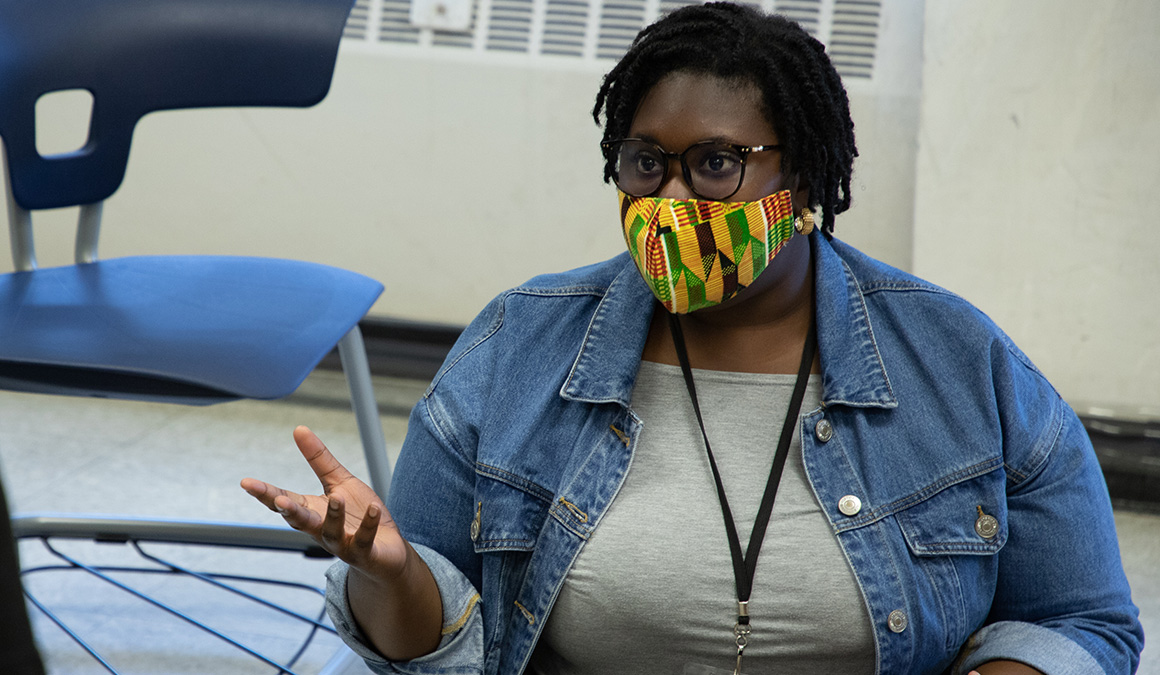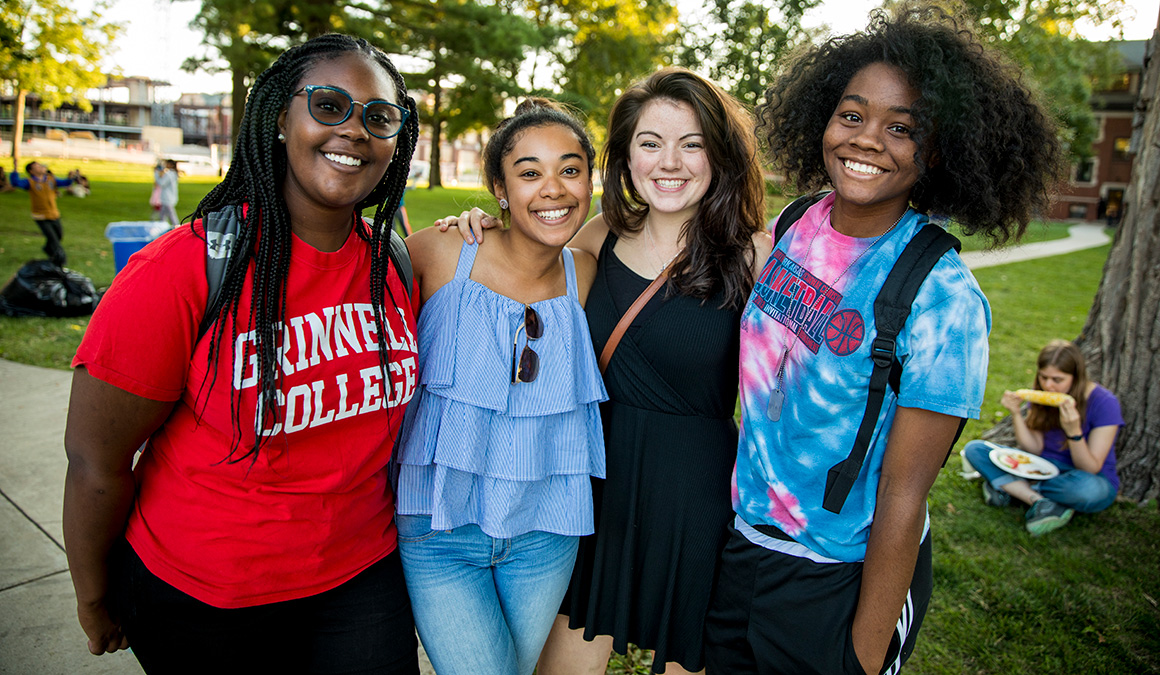Madison Wardlaw ’20
Passion meets possibility.

Pursuing and combing passions led this Grinnell student to a meaningful career.
Madison Wardlaw ’20 was always an inquisitive student with a remarkable passion for science. Though she fostered this interest by participating in science fairs and reading everything she could about the sciences on her own throughout middle school, she never really considered that it could be more than a hobby.
“When I was in the eighth grade, I had a science teacher who was a Black woman,” Wardlaw recalls. “I’d never thought of myself as a scientist until then, but I could see myself in her; and she made me realize I could do whatever I wanted.”
From then on, Wardlaw zealously pursued her scientific interests; she came to Grinnell in 2016 to further her studies, explore her career options, and discover new possibilities. As a first-year student, Wardlaw took an education course with associate professor Deborah Michaels and uncovered a passion for teaching that she knew could be incorporated with her love of science into a meaningful career.
“That class was really the first discussion-based class I had,” she recalls. “I learned to recognize student inequity and saw how it affected me. I learned that there are educators working to correct those issues, and I knew I wanted to be part of that work. So I pursued interests in both chemistry and education at Grinnell and explored ways to combine my passions.”
 Madison Wardlaw ’20 taught 11th-grade chemistry for English language learners in Philadelphia during the 2020-21 school year.
Madison Wardlaw ’20 taught 11th-grade chemistry for English language learners in Philadelphia during the 2020-21 school year.
This exploration involved research in bioinorganic synthetic chemistry and instruction-focused education, an internship at Generation Teach, studying abroad in Denmark, and attending numerous professional conferences. Wardlaw also served in leadership positions in several student organizations, including stints as co-leader of Black Students in STEM, co-chair of the Chemistry Department Educational Policy Committee, treasurer of Crecemos Unidos, and student assistant in the Grinnell Science Project.
“Being in these positions at Grinnell, I was respected by other students but also by professors and staff who supported my work,” she says. “All of these experiences made me realize that I could pursue my dreams and have a positive effect on the world at the same time.”
Wardlaw says her participation in this wide range of activities — and the insights, knowledge, and experience she gained through them — is a testament to the professors and advisers who encouraged her and to the donors who made it financially possible for her to chase all of her dreams.
In addition to being a recipient of the Presidential Scholarship, a $50,000 annual merit-based scholarship, Wardlaw also received the Smith Family Prize her senior year, which is awarded to biology, biochemistry, and chemistry majors who are excelling academically and socially. “The scholarship and awards and all the financial assistance I received made a huge difference,” she says. “College just would not have been an option for me without them. It changed my world.”
 Madison Wardlaw ’20 (left) poses with friends during a campus picnic.
Madison Wardlaw ’20 (left) poses with friends during a campus picnic.
After graduating in 2020, Wardlaw spent a year teaching 11th-grade chemistry for English language learners in Philadelphia and furthering her education at the Pennsylvania Graduate School of Education on a Woodrow Wilson Teaching Fellowship. The fellowship is highly competitive and provides recipients a $32,000 stipend for the year while they are enrolled in a master’s program.
“After graduate school I’ll be teaching 4th-to-8th-grade students,” she says. “Not necessarily teaching chemistry, but I will get to create a makers’ space where we can do experiments and make things. Being able to just explore, experiment, and make things on their own is very important especially with students so young; it is really exciting.
“When it comes down to it, all the experiences I’ve had grew out of and were made possible by the scholarships and assistance I received at Grinnell,” she adds. “From my second year on, I really felt like I was able to flourish rather than struggle. I never had to turn down an opportunity because money was a barrier. There were always pockets of money available, and I just had to figure out how to apply for them.”
— by Tim Schmitt